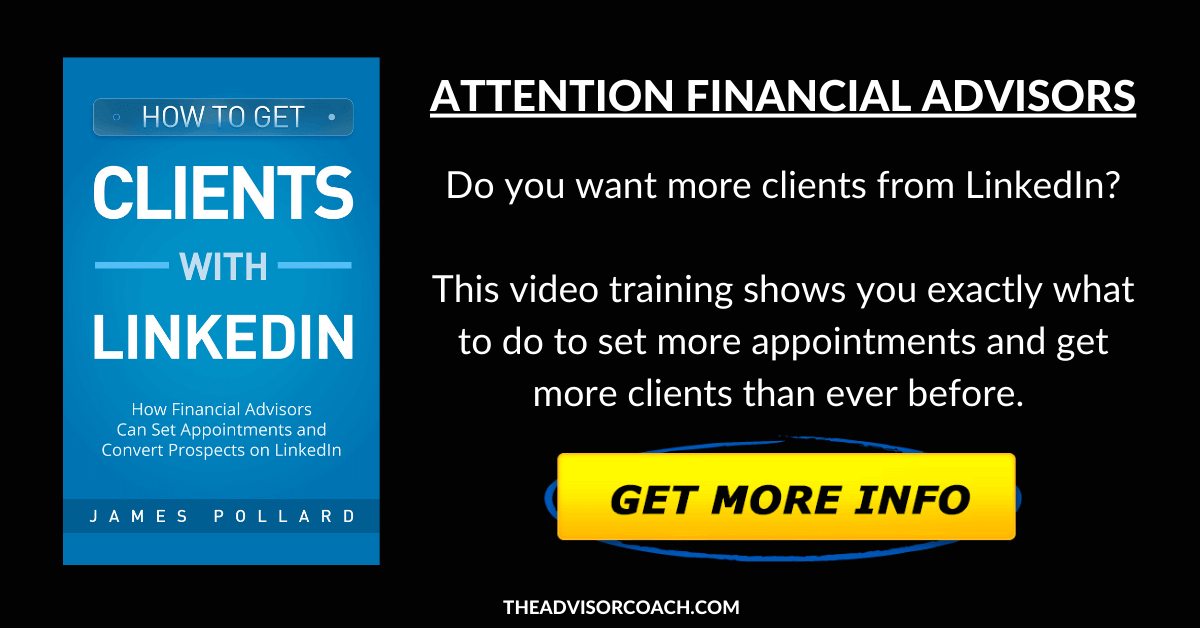7 Horrible Insurance Marketing IdeasNOTE: If you’re a new financial advisor, make sure you check out Your First Year As A Financial Advisor, where I reveal several things every new financial advisor ought to know.
Insurance agents and agencies alike live and die with the marketing strategies they use. Some are great, some are horrible. Here are seven horrible insurance marketing ideas. Take note so you don’t make any of these mistakes. 1. Expecting Too Much, Too Soon.Success is a process, not an event. In today’s “microwave” world, years of hard work can look like an overnight success. Many new agents start their careers and expect to have the same level of success as a twenty-year veteran. There’s nothing wrong with wanting this, but success takes time and sacrifice. You must put in the effort.
Instead of a microwave, the insurance business (and most businesses) should be looked at as a crockpot. One of the worst insurance marketing ideas is the idea that marketing itself is a get-rich-quick type deal. Marketing and building a business tends to be a slow process. That doesn’t mean that you can’t have quick success, because you definitely can, but wouldn’t you rather be mentally prepared for the long haul? ALSO READ: Top 10 Best Books for Insurance Agents 2. Focusing On Price.If you believe people buy based only on price, quit today.
The insurance industry will not survive with a bunch of price-checkers; it will just be a race to the bottom. Whenever somebody tells me that people focus only on price, I ask that person to pull out their phone. If they pull out an iPhone or some other fancy smartphone, I ask why they didn’t buy something cheaper. Then I ask if they bought their clothes directly from China. Okay, maybe I’m being a little harsh. The truth is that some people are always going to price-shop. I personally am a ruthless price-shopper when it comes to certain things, like hotel rooms. When it comes to insurance, there are two types of buyers: transaction-driven buyers and relationship buyers. The transaction-driven buyers are price sensitive. They have no loyalty and as soon as they find a cheaper price, they drop you. The relationship buyers are loyal – they are looking for someone they can trust and build a relationship with. Transaction-driven buyers will stay with you a year or two, while the relationship buyers will stay with you for years, especially if you add multiple lines. Keeping your relationship buyers happy is the key to your marketing success. ALSO READ: 5 Tips for Selling Insurance Over The Phone 3. Emphasizing Quantity Over Quality With Content Marketing.What’s this newfangled trend called “content marketing”, you ask? It’s where you write a bunch of low-quality blog posts as quickly as you possibly can and slap it up on your terrible website that still looks like it’s from 1997.
Yes, content is king. The problem with this truth is that it leads many insurance agents and agencies to believe that more content is better. This isn’t necessarily true. You might get more leads with more content, but you’ll get WAY more leads with more high-quality content. Tons of low-quality content will annoy and distract prospects from reaching out to you. It might even hurt your brand’s reputation. Yet, if you can put together a nice internet marketing system, it will give you a substantial ROI. I’ve had multiple insurance agents tell me that online marketing beats out every other tactic they use to generate business. The problem for many agents is that it’s pretty costly (in time, effort, or money – you pick!) to create an online marketing machine. They have to make money in the short-term, so they turn to other insurance marketing ideas. ALSO READ: 7 Awesome Content Marketing Tips for Financial Services 4. Spamming.Please don’t spam. One of the worst insurance marketing ideas is to spam in any fashion. A particularly nasty offender is the social media auto-response message. It’ll read something like this: “Thanks for following me. If you need insurance, visit my website.” Gee, that sure did make me feel like a valued human being! Let me get my check-writing hand warmed up!
Most social media users HATE these automated responses. Insurance agents love to read business books that hype up automation and try to apply it to their digital marketing, where it backfires. Social media communication is one area where people want to know they’re talking to a real human being. Automated responses are easy to spot and almost always leave a bad impression. Another offender is spamming centers of influence. An insurance agent might read that referrals are one of the keys to building a successful business and proceed to spam everyone and their mother. They’ll collect email addresses and LinkedIn profiles and send the same message to real estate agents, car dealerships, attorneys, accountants, and whoever they think might net them a quick deal. 5. Mass Mailing.Direct mail is a workhorse of insurance marketing. However, many insurance agents could be getting much better results. Let’s say that you get a .5% response rate on your direct mail. If you can get that up to 1%, you will have effectively doubled your revenue, provided everything else stays the same. It’s really that simple.
Insurance agencies get comfortable with the idea of mass marketing simply because their revenue is enough to cover the costs. But I’d rather have the money in MY pocket – wouldn’t you? Insurance companies love to mail out postcards to anyone with a pulse, and if you try to speak to everybody, you lower your effectiveness. I’m a big advocate of segmenting your direct mail campaigns to make them more specific. Have one campaign for wealthy households, another for 55+ communities, and another for low-income neighborhoods. Long gone are the days of “spraying and praying”. If you are an insurance agent who thinks that direct mail is a money waster, you’re probably doing it wrong. I’ve had advisors and insurance agents stamp their feet and cry like babies, telling me that direct mail just doesn’t work. But then when they do the things I suggest, they change their tune. Funny how that works, right? If you’re curious about “what works”, I suggest you get The Ultimate Financial Advisor’s Guide to Getting More Clients. The “direct mail” section is short, but it’s exactly what you need to know to be successful. It’s also got stuff on cold calling, social media, referrals, productivity, etc. If you sell ONE policy from the information gained, you’ll make your money back. It’s really a no-brainer. 6. Buying An Email List.I know that building a large email list takes time. You’re staring at that email software wishing there was a quick fix to your problem. You may get tempted to purchase an existing list that contains thousands of emails. You think, “If I could just get two or three clients from these 10,000 email lists, it’ll be worth the investment.” Then you convince yourself that, because follow-up is so important, you’ll include them in a drip email marketing campaign.
Don’t. Those email lists are almost always complete garbage. If you really want to buy an email list, just send me the money instead. I’ll gladly take it. With most of these lists, you have no idea who you’re emailing and if they’re even qualified. What’s worse is that your agency brand will look spammy and you’ll probably be marked as a spammer by email service providers. So when you finally come to your senses and do things the right way, you’ll still be marked as a spammer, negating all your effort. If you're interested in email marketing, check out my article about how to improve your email marketing. Bought email lists are the equivalent of robocalling except it's email. Speaking of which… 7. Using Robocalls.I recently read an insurance marketing book that said to make robocalls that started with, “This is about your children”. I immediately put the book down and lit it on fire (then I roasted marshmallows with it – they were tasty!). This is a terrible idea.
People already dislike getting sales calls. It’s like someone sat down and thought, “How can I turn moderate annoyance into a seething rage? I know! I’ll make it a robocall!” Actually, robocalls are REALLY stupid now because there have been several scams over the past few years involving robocalls. A few have gotten national press coverage. One of them was about health insurance and would tell people to buy health insurance or face a fine. Then, it asked for name, date of birth, social security number, etc. So if you’re one of the people still using robocalls, you deserve everything you get. People will immediately think “scam”. BONUS: Relying On Any One Strategy...I know I said “7 Horrible Insurance Marketing Ideas”, but I wanted to include this.
It’s a whole new world out there for insurance agents. The insurance marketing ideas that worked really well years ago don’t work AS WELL now. There are hundreds of people out there who will take your money to give you some program or another, promising to supercharge your leads via ONE marketing method, usually social media or SEO….or prayer. The truth is that no one method works. I WISH I could tell you that there’s one big “secret” that only seven people in the world know, but there isn’t. I wouldn’t even make any money if you could just post an ad in the yellow pages, sponsor a little league team, and be done. It’s sad to see insurance providers get sucked down this black hole, hoping and believing that “this time will be different”, only to realize they wasted precious time and money. To succeed in today’s world, you have to be a clever marketer, and you have to keep a few plates spinning at the same time. P.S. If you're a financial advisor who wants to get more clients from LinkedIn, make sure you check out How to Get Clients With LinkedIn: How Financial Advisors Can Set Appointments and Convert Prospects With LinkedIn |


